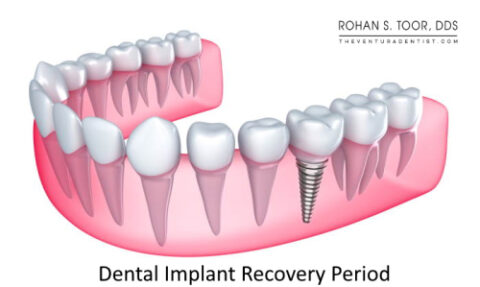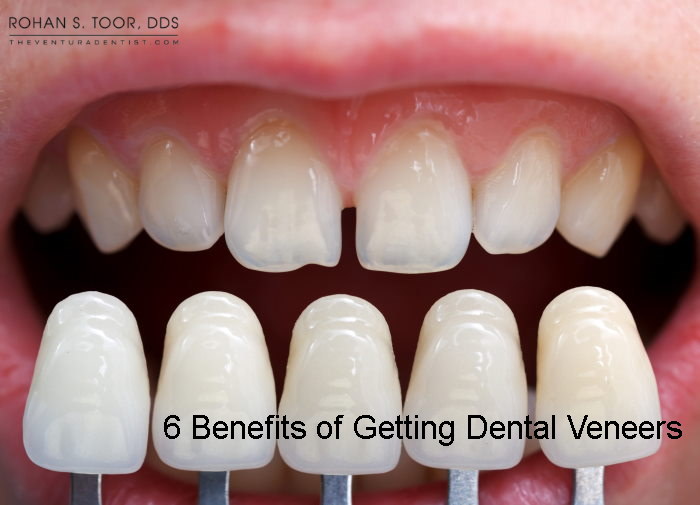
Dental Implant Recovery Time
The healing time for dental implants usually takes 3 to 6 months. Dental implants are metal posts that are used to replace missing or damaged teeth. Dental implant surgery involves making a cut by an oral surgeon to expose the gum and bone. Then, holes are drilled into the bone where the implant will be inserted. Tooth extractions may be needed for damaged teeth. It will take another 7 to 10 days before you can get your dental implant.
What is the Recovery Time for a Dental Implant?
The average recovery time for dental implants is about 3 to 6 months. During this time, the implants have integrated into your jawbone and the gums are fully healed. The recovery time will vary for each patient, depending on the number of implants made, how strictly you follow post-operative instructions, and how your body reacts to the implant.
What Are the Healing Stages After Getting Dental Implants?
There are three healing stages after getting a dental implant.
- Stage 1: Post-operative recovery
The dentist will advise you to rest after your dental implant surgery. You must avoid eating crunchy or hard food, doing exercises, and smoking. You may experience some discomfort and notice swelling near the tooth implant, lasting for a few days to a week. To ensure safe and fast recovery, follow your dentist’s instructions.
- Stage 2: Soft tissue healing
This phase, which normally lasts 2 weeks, is marked by swelling, redness, and sensitivity around the dental implant site. For some people, the swelling can remain up to 6 weeks. Avoid doing anything physically demanding activity while your soft tissue heals. To help clean the implant site and hasten recovery, drink lots of water.
- Stage 3: Osseointegration
Osseointegration is the process wherein the dental implant post fuses to your jawbone. This creates a solid base for the artificial tooth and the abutment. Healing can take 3 to 6 months, depending on the number of implants placed, your age, and oral health. Gradually, you can start doing some of your regular activities. It is crucial to brush your teeth gently and avoid the dental implant site until it has fully healed.
Prior to dental implant placement, patients must know beforehand what to expect during the healing phases. To ensure the success of your teeth replacement with dental implant, carefully follow the instructions given by your dentist.
How Long Does It Take for a Dental Implant Bone Graft to Heal?
A dental bone graft can restore your jaw’s volume and density in places where there has been bone loss. This operation is usually carried out when neighboring teeth are badly impacted by bone loss before dental implants are placed. Even though you’ll probably feel normal again in a week or two, a full recovery from a dental bone graft can take 3 to 9 months. The type of graft, the location of the graft, and your body’s capacity for healing all have an impact on the recovery time. Checkout
How to save money on dental implants procedure.
What is the Dental Implant Healing Time Before Crown?
It will take 3 to 6 months for the implant site to recover before a crown can be attached to it. A crown is an artificial tooth mounted on a dental implant having the same durability and strength as a natural tooth. Osseointegration must occur before placing a crown in order to provide sufficient stability and support.
What is Osseointegration?
Osseointegration is the process wherein the jawbone and the implant fuse together as a result of the surrounding bone’s development. Osseointegration takes 3 to 6 months to complete. After osseointegration, the dental implant will integrate with the gums and jawbone. Tissues of the jaw will grow around the implant, strengthening and stabilizing it. Osseointegration is a process required for the successful installation of dental implants.
What affects dental implant healing time?
Here are the top 6 factors that influence how quickly dental implants heal.
- Jawbone density – This affects the effectiveness of dental implants and the length of the recovery period. There must be sufficient jawbone mass for the implant to osseointegrate. Patients with less jawbone mass must undergo a bone graft before placing the dental implant.
- Healthy gums – The health of the patient’s gum tissue is an important factor affecting the success and healing time of dental implants. People with active gum disease increase their risk of developing peri-implantitis, an infection linked to dental implant failure. Gum disease must be treated first before inserting dental implants.
- Dental hygiene – Maintaining good oral hygiene reduces the recovery period for dental implants. Brushing your teeth at least 2 times a day, flossing once per day, and using a mouthwash can prevent bacteria and plaque formation. This results in a lower risk of infection and a higher chance of success for the dental implant.
- Diet – What you eat after surgery is another typical aspect that influences how quickly dental implants recover. After implant surgery, you’ll need to follow a brief soft food diet. Consuming soft foods reduces the risk of harming your dental implant before it has had a chance to recover. Eating chewy, crunchy, or hard foods may overstress an implant and result in it shifting or even breaking.
- Proper hydration – After dental implants are placed, drinking enough water is crucial. It helps the body rid itself of toxins that could otherwise prevent healing. Alcohol and caffeine should also be avoided because they both cause the body to become dehydrated. For at least two weeks following surgery, if not longer, one should abstain from alcohol because it may also slow the healing process.
- Smoking – Smoking has a bad effect both on your oral and general health. It impedes the body’s natural healing processes and increases the risk of infection after dental implant surgery. It also narrows your blood vessels, increasing the possibility of heavy bleeding during and after surgery.
Dental Implant Recovery Tips
To lessen the swelling, you must keep your head elevated, apply an ice pack, avoid strenuous activity, follow the instructions and take the anti-inflammatory medication given by your dentist. Rinse your mouth with warm water with salt for faster healing. Eat only soft foods during the first few days after surgery. Maintain regular oral hygiene to lower your risk of infection. Finally, abstain from smoking because it hinders the body’s ability to heal. Knowing dental implant aftercare tips will help you have a fast and safe recovery from your implant surgery.
How Long Should You Wait Before Getting a Dental Implant After a Bone Graft?
A bone graft and dental implant cannot be done less than 6 months apart. It takes this long for the bone graft to become strong enough to hold a dental implant. In areas where bone loss has occurred, a bone graft can help your jawbone grow in volume and density. Once the bone graft site has fully recovered, the dental implant can then be inserted.
What more is there to know about dental implants besides their healing time?
Dental implants are used to replace permanent missing teeth. Rohan Toor Dental Care has extensive experience in the
placement of implants. We can help you with any questions related to
dental implant cost with insurance or without it. Give us a call today.
Are you considering having a dental implant? To learn more about this restorative dental procedure, consult with
Dr. Rohan Toor at
Rohan Toor Dental Care today.


